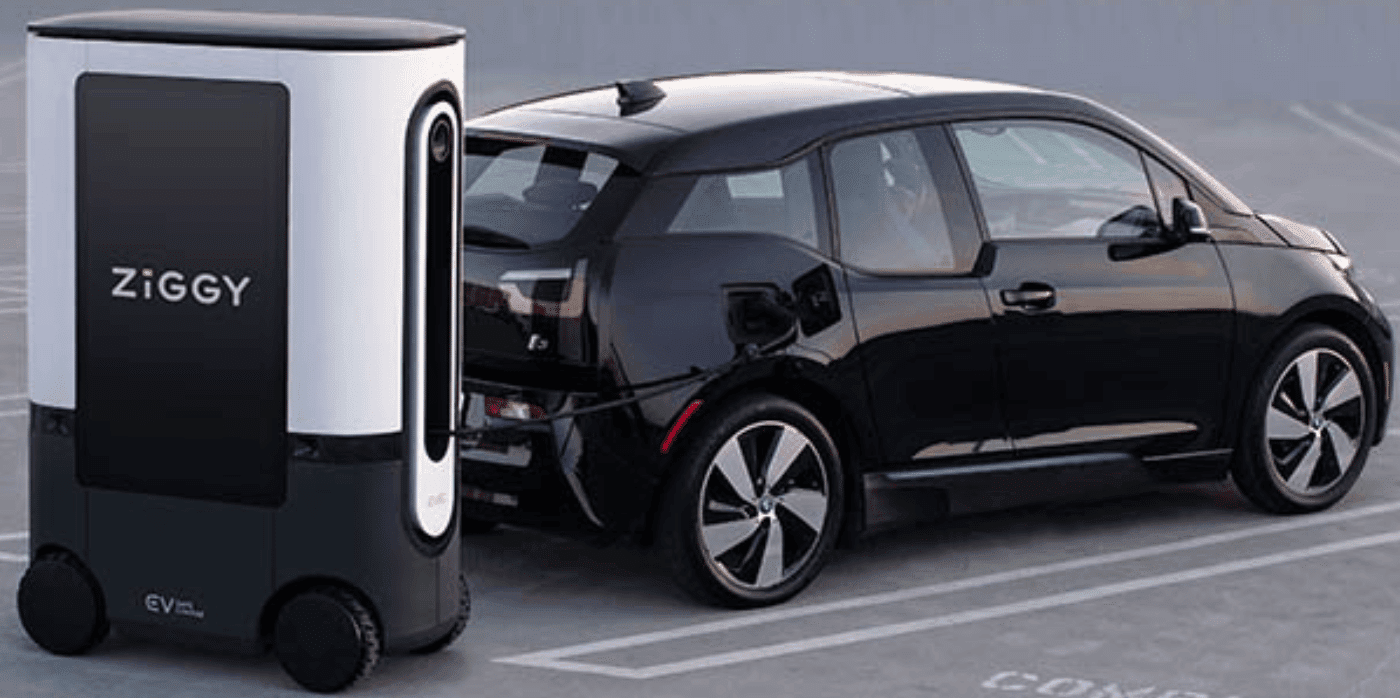
Spotted: In 2021, sales of electric vehicles (EVs) doubled from the previous year, reaching an all-time high of 6.6 million. Growth looks likely to continue, with the first figures from 2023 showing year-on-year increases. Where the dynamism of the market may stumble is in the lack of public charging infrastructure. The International Energy Agency (IEA) warns in its Global EV Outlook 2022 report that the number of public charging stations that governments and agencies have announced as planned may not be enough to power the growing number of EVs on the road.
Rather than reconfigure public parking ramps to find room for stationary charging stations, USA-based EV Safe Charge is turning to robotics for a mobile, bookable EV charging solution. Called ZiGGY, the company’s robotic charger debuted at the Dallas Fort Worth airport in May 2023. Designed to make EV charging easy and convenient, the robot reserves a parking space for the driver when a charge is requested through the app.
Upon arrival at the airport car park, drivers receive directions to the space the robot has reserved for them. When they return, a fully charged vehicle awaits. The robotic charging stations provide a variety of benefits for car park owners, including sizeable advertising space on two sides of the robot and the elimination of the need to dedicate significant amounts of space to permanent charging stations.
By offering EV charging-as-a-service, airports and other large commercial spaces provide customers with a safer, smoother experience. Car owners don’t have to waste time and battery power searching for an available charging centre, and frequent flyers don’t have to worry about returning to an uncharged car battery.
Other innovations in Springwise’s archive that are helping upgrade the global EV charging network include a platform that tracks electricity prices for the most cost-effective charge and an artificial-intelligence-powered (AI) app that charges connected vehicles when the price is best.
Written By: Keely Khoury

